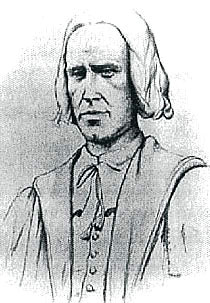Archives
- 01/01/2004 - 02/01/2004
- 02/01/2004 - 03/01/2004
- 03/01/2004 - 04/01/2004
- 04/01/2004 - 05/01/2004
- 05/01/2004 - 06/01/2004
- 06/01/2004 - 07/01/2004
- 07/01/2004 - 08/01/2004
- 08/01/2004 - 09/01/2004
- 09/01/2004 - 10/01/2004
- 10/01/2004 - 11/01/2004
- 11/01/2004 - 12/01/2004
- 12/01/2004 - 01/01/2005
- 01/01/2005 - 02/01/2005
- 02/01/2005 - 03/01/2005
- 03/01/2005 - 04/01/2005
- 04/01/2005 - 05/01/2005
- 05/01/2005 - 06/01/2005
- 06/01/2005 - 07/01/2005
- 07/01/2005 - 08/01/2005
- 08/01/2005 - 09/01/2005
- 09/01/2005 - 10/01/2005
- 10/01/2005 - 11/01/2005
- 11/01/2005 - 12/01/2005
- 12/01/2005 - 01/01/2006
- 01/01/2006 - 02/01/2006
- 02/01/2006 - 03/01/2006
- 03/01/2006 - 04/01/2006
- 04/01/2006 - 05/01/2006
- 05/01/2006 - 06/01/2006
- 06/01/2006 - 07/01/2006
- 07/01/2006 - 08/01/2006
- 08/01/2006 - 09/01/2006
- 09/01/2006 - 10/01/2006
- 10/01/2006 - 11/01/2006
- 11/01/2006 - 12/01/2006
- 12/01/2006 - 01/01/2007
- 01/01/2007 - 02/01/2007
- 02/01/2007 - 03/01/2007
- 03/01/2007 - 04/01/2007
- 04/01/2007 - 05/01/2007
- 05/01/2007 - 06/01/2007
- 06/01/2007 - 07/01/2007
- 07/01/2007 - 08/01/2007
- 08/01/2007 - 09/01/2007
- 09/01/2007 - 10/01/2007
- 10/01/2007 - 11/01/2007
- 11/01/2007 - 12/01/2007
- 12/01/2007 - 01/01/2008
- 01/01/2008 - 02/01/2008
- 02/01/2008 - 03/01/2008
- 03/01/2008 - 04/01/2008
- 04/01/2008 - 05/01/2008
- 05/01/2008 - 06/01/2008
- 06/01/2008 - 07/01/2008
- 07/01/2008 - 08/01/2008
- 08/01/2008 - 09/01/2008
- 09/01/2008 - 10/01/2008
- 11/01/2008 - 12/01/2008
- 01/01/2009 - 02/01/2009
- 04/01/2009 - 05/01/2009
- 07/01/2009 - 08/01/2009
- 09/01/2009 - 10/01/2009
- 10/01/2009 - 11/01/2009
- 11/01/2009 - 12/01/2009
- 12/01/2009 - 01/01/2010
- 03/01/2010 - 04/01/2010
Utopian Turtletop. Monsieur Croche's Bête Noire. Contact: turtletop [at] hotmail [dot] com
Sunday, December 10, 2006
Pop Conference proposals are due on Friday, but I probably will not have much computer access for the next week, so here, with little hope of being accepted, is mine:
Title: “Born Free” as the Sound of the ‘60s; or, How the Generation Gap Names the Lacuna in Pop History, Which Has Never Been Written, As Such
Tony Bennett and Chuck Berry were born the same year as Miles Davis, Allen Ginsberg, and John Coltrane -- 1926. Bennett had his last Top 40 hit in 1965; Berry’s last was in 1964, until he hit again with two fluke live hits in ‘73 and ‘74.
Barbra Streisand was born in 1942, the same as Paul McCartney and Brian Wilson. Streisand hit the Top 40 twice in the ‘60s singing in the pre-rock popular style; her radio career took a leap up in 1970 when she started covering material by rock-influenced writers like Laura Nyro.
So-called “pop” history has always told a tale of how rock-and-roll came and knocked the older popular style off its pedestal, but the record shows that pre-rock-style pop never went away. Far from leaving the stage, practitioners of the older style responded to the ‘60s freedom call with such Top 40 hymns to unbridled individuality as “Moon River” (#11, twice in 1961, for Jerry Butler, then for Henry Mancini); “Born Free” (#7, 1966, Roger Williams); “The Impossible Dream (The Quest)” (#35, 1966, Jack Jones); “I’ve Gotta Be Me” (#11, 1969, Sammy Davis Jr.); and “My Way” (#27, 1969, Frank Sinatra; and #22, 1977, Elvis Presley).
“Pop” history deserves its scare-quotes because it has always been partisan and partial, turning a deaf ear to the contemporaneous survival of the older style. Of what biases about age and class might this absence speak? Does “pop” history teach that only the young and anti-middle-class were truly born free?
* * * * *
I dashed this off tonight and sent it in, and now as I expected new wrinkles to the question are revealing themselves, such as: Could the pre-rock writers' invocation of unbridled individuality be a conservative response to the more communitarian calls for freedom of the soul and rock writers? And -- my deprecation of the lack of "pop" history is decidedly under-nuanced, but what the heck, polemic is entertaining, right? Like I said -- "little hope of being accepted" -- and polishing it probably would not have improved its chances appreciably.
As the old folks like to say, keep on rockin' in the free world -- and cheers --
Comments:
Post a Comment
